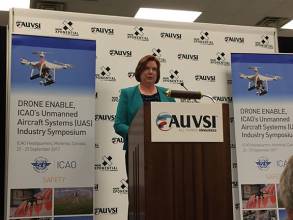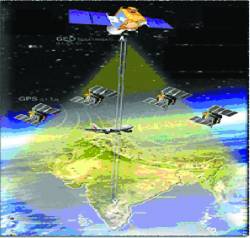Technology from Helix Geospace will be used to develop an accurate, resilient GNSS solution as part of the Future Flights Challenge Phase 3 project, with the goal of demonstrating how large drone swarms can be deployed to solve environmental protection concerns in GNSS-denied environments.
The UK Research and Innovation (UKRI) funded project will use a combination of digital twining, computer vison and real-world flight testing, according to a news release. Partners include Windracers, Distributed Avionics, University of Bristol and University of Sheffield.
The goal is to prove a single remote operator and a local safety pilot can handle several unmanned devices while maintaining continuous communication, even when GNSS isn’t available.
The company’s DielectriX antennas will be used in this project. The antennas are built into a sophisticated array system that can detect jamming and spoofing events, locate their precise source, and then eliminate their impact.
The Windracers middle mile logistics drone will be equipped with British Antarctic Survey scientific research equipment and flown in the Antarctica region, where it will gather novel research data, “previously not achieved before at this scale.” The collaboration with Lancashire Fire and Rescue will help develop a solution for early fire detection and mitigation. The Windracers cargo drone will be retrofitted with sensors and fire mitigation technology.
“Due to the weak and vulnerable nature of the GNSS signal, the signal is extremely susceptible to jamming and spoofing, thereby denying availability of a vital navigational system which enables safe and directive flight,” Oliver Leisten, Chief Technology Officer at Helix Geospace said, according to the release. “Our antenna with its sophisticated array system provides a resilient solution that not only mitigates this PNT disruption but also promulgates intelligence on the threat/disruption landscape vital for the management of mission critical applications. This collaboration will help us to generate valuable test data and support us in setting a new benchmark in terms of reliability and performance in GNSS-denied environments.”
The Phase 3 projects from the Future Flight challenge range from hydrogen-powered planes to airspace management systems, according to a Windracers news release, and share £73 million in funding to develop and demonstrate integrated aviation systems and new vehicle technologies.






